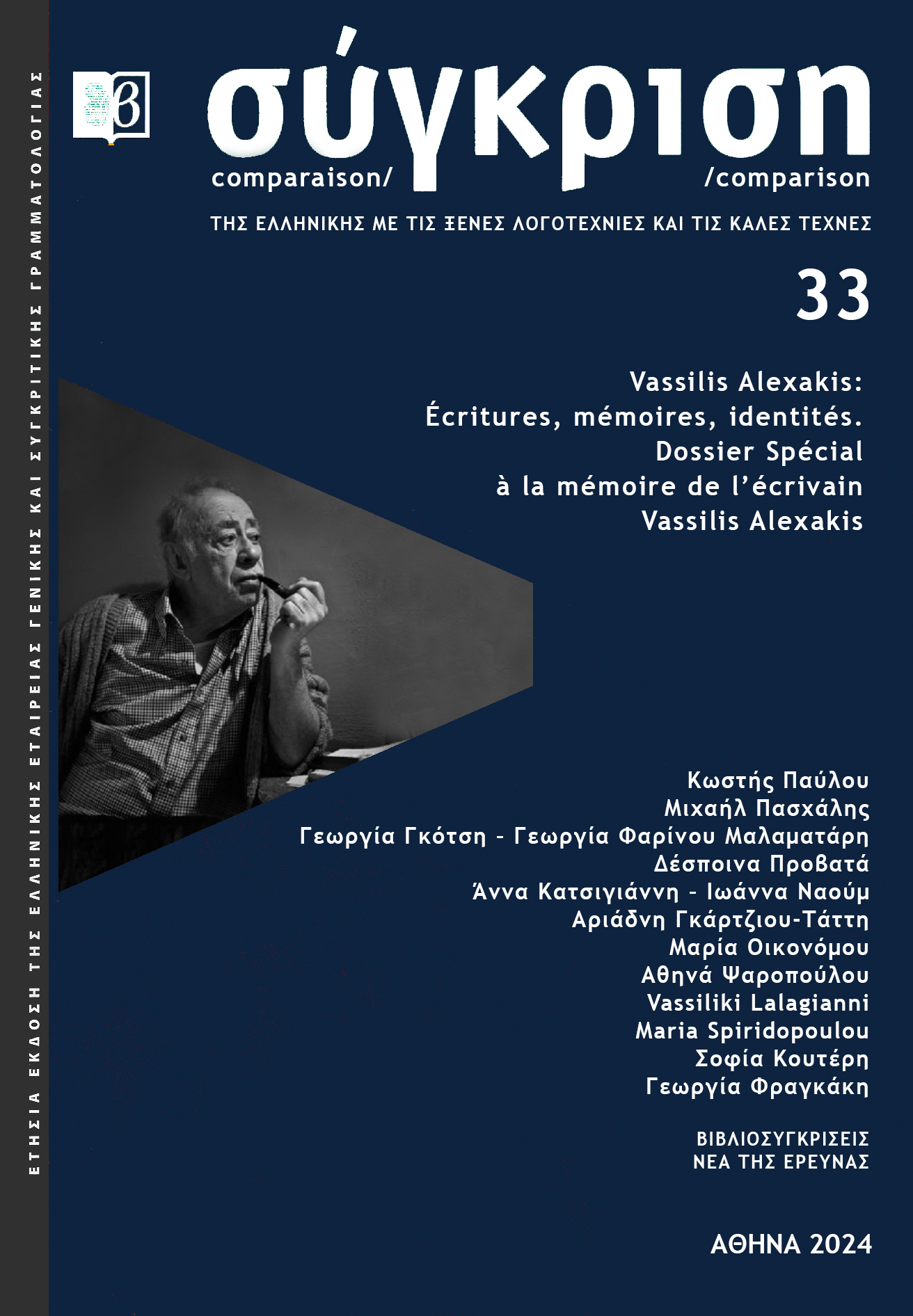Vassilis Alexakis’s "late works": L’enfant grec and La clarinette

Abstract
In this study, I suggest that Alexakis’s last two novels can be read as his
quintessentially “late works”. Although I will refrain from arguing for the
development of a “late style” in Alexakis’s final works, I will show that L’enfant
grec and La clarinette reflect on lateness in ways that extend some of the author’s
favored themes while, at the same time, expanding their inter- and extra-textual
narrative function. I will first discuss some of the prevailing theories in the field
of “late style” studies; then articulate the theoretical contours of Alexakis’s
“lateness”; and, finally, identify the narrative strategies that the author deploys in
his last two novels to both center and eschew his ongoing reflection on death and
loss;to highlight the porous, if not irrelevant, border between reality and the
novelistic universe; and to texture the radical contractions of space and time that
make the life of a bilingual, bicultural subject manageable, if not enjoyable and
creatively productive, even as he senses the inevitable approach of life’s ending.
Article Details
- How to Cite
-
Chatzidimitriou, I. (2025). Vassilis Alexakis’s "late works": L’enfant grec and La clarinette. Comparison, (33), 105–119. Retrieved from https://ejournals.epublishing.ekt.gr/index.php/sygkrisi/article/view/39119
- Issue
- No. 33 (2024)
- Section
- Articles

This work is licensed under a Creative Commons Attribution-NonCommercial-ShareAlike 4.0 International License.
Authors who publish with this journal agree to the following terms:
- Authors retain copyright and grant the journal right of first publication with the work simultaneously licensed under a Creative Commons Attribution Non-Commercial License that allows others to share the work with an acknowledgement of the work's authorship and initial publication in this journal.
- Authors are able to enter into separate, additional contractual arrangements for the non-exclusive distribution of the journal's published version of the work (e.g. post it to an institutional repository or publish it in a book), with an acknowledgement of its initial publication in this journal.
- Authors are permitted and encouraged to post their work online (preferably in institutional repositories or on their website) prior to and during the submission process, as it can lead to productive exchanges, as well as earlier and greater citation of published work (See The Effect of Open Access).


